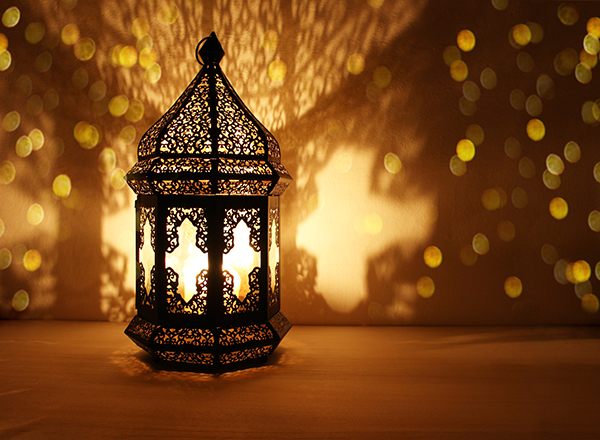What Ramadan means

Dear HFC Community,
This message is one of many related to our diverse community’s numerous unique holidays, including cultural, historic, and religious observances throughout the year. I am likely to write about the holidays or cultural observances that mean the most to you as they occur throughout the year. Please let me know if you want to learn my plans about a holiday that is specifically important to you.
I want to share some information about the Muslim holy month of Ramadan, and some tips on how to support our Muslim friends, neighbors, students, and teammates.
What is Ramadan?
Ramadan is a holy month of worship, study of the Quran, prayer, and fasting.
Ramadan occurs during the month in which Muslims believe the Quran began to be revealed to the Prophet Muhammad. It is a joyous celebration for Muslims.
Fasting is one of the Five Pillars of Islam. Healthy adults are expected to observe the fast. During Ramadan, the fast helps believers purify their hearts, renew their faith, seek forgiveness, and increase self-discipline. It is also a time to focus on what is most important and positive in a believer’s life.
The Ramadan fast is absolute. Each day, from the time of Suhoor (the final meal before sunrise) until Iftar (the meal to break the fast), Muslims abstain from all food and water. Nothing may be consumed during these hours.
Believers are also encouraged to abstain from anger and to show compassion. Fasting can be a way to increase awareness of Allah and to be more aware of the plight of those who are poor and suffering. Acts of charity are encouraged.
When is Ramadan?
Muslims observe a lunar calendar. Ramadan is the ninth month in the lunar year.
Eid-al-Fitr
At the conclusion of Ramadan, Muslims celebrate the holiday of Eid-al-Fitr (the Festival of Breaking the Fast). It begins with the communal Eid prayer. The holiday includes breaking the month-long fast and celebrating together.
How non-Muslims can support Muslims during Ramadan
Be aware of the holiday. Muslims observing the fast may be tired and dehydrated. Be aware of this, and be considerate of those who may struggle during their fast.
If you are interested, ask questions about what a Muslim friend or teammate is learning during Ramadan. Ask how you can learn about their religious tenets.
Muslims hold a communal Iftar meal each day after the Maghrib prayer at sunset, to break their daily Ramadan fasts.
Feel free to wish our Muslim brothers and sisters a Happy Ramadan, by saying “Ramadan Mubarak”.
To all who celebrate: Ramadan Mubarak!
Russ Kavalhuna
President
president@hfcc.edu